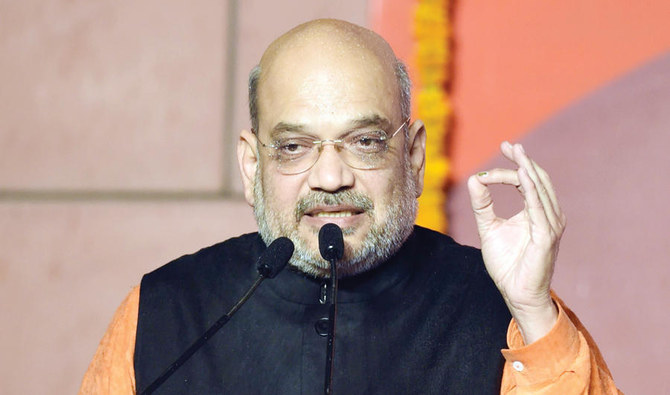
by Rupa Kumari 28 January 2022
In an attempt to brag about his government’s effort to recover a pandemic-hit economy, India’s Home Minister Amit Shah boasted that India might emerge as the world’s fastest-growing economy in 2022. However, Indians from almost all walks of life, who have been experiencing the impact of their economy’s double-digit inflation for quite a while, would doubt Amit Shah’s forecast. In fact, last November’s inflation rate, which rose extravagantly by 14.23% in just a month, shows Indian economy is currently very much down and sloppy.
Business Enterprises Shutting Down
India’s micro, small and medium enterprises contribute half of the country’s exports. These enterprises contribute 30% of nominal GDP. They represent 95% percent of industrial units. Unfortunately, the pandemic has devastated their businesses, sending shockwaves to all sections of Indian economy.
In December 2021, Narayan Tatya Rane, who is India’s Minister of Micro, Small and Medium Enterprises, revealed an online survey which suggested that 9% of these enterprises had to shut down because of the pandemic. Another survey conducted earlier in May 2021 on 6,000 of these enterprises as well as startups found that 59% of them planned to shutdown, scale down or sell their businesses by the end of 2021.
Mounting Unemployment Rate
These aforementioned micro, small and medium enterprises employ 110 million people, making them one of the largest contributors to Indian labour market. As these enterprises are shutting or scaling down their businesses, unemployment among labourers is exponentially increasing. Consequently, an increasing number of workless labourers, who usually live on hand-to-mouth, are wondering around the streets, looking for food and shelter.
Aside from labourers, the people from the middle class and the near-rich class too have been experiencing unemployment. This is because, unemployment in the Indian cities, which host most of the better-paying jobs, has been progressively increasing since the start of the pandemic. According to an Indian independent think-tank named Centre for Monitoring Indian Economy, the urban unemployment rate was above 9% in December 2021, a figure which is alarming for a country where, as mentioned above, the cities host most of the better-paying jobs.
There’s more to the India’s unemployment crisis which has spread like a cancer in almost all the industries. Take the automobile industry for example. This industry ran successful in the Indian cities prior to the pandemic. It created many jobs, including those better-paying ones. However, sales in this industry remain low since the start of the pandemic. The automobile stores that sell vehicles or auto parts have been shutting down, one by one. Consequently, people who work in this industry have been losing their jobs, contributing to the increasing rate of urban unemployment in particular and overall unemployment of the country in general.
It is unlikely that India would be able to reduce unemployment rates anytime soon because of (a) the shutting or scaling down of the micro, small and medium enterprises, which employ millions of people across the country, and (b) the increasing rate of unemployment in the cities which host almost all the better-paying jobs in the country.
Food Price Hike, Calling Off Weddings
In December 2021, the prices of the country’s consumer food rose quickly, making the hike the fastest in six months. During this period, costs of vegetable oils jumped more than 24% from a year earlier. The cost of tomatoes and onions, which are deemed to be the staple vegetables in the country’s household kitchens, have been progressively increasing and the costs of these two vegetables had nearly doubled in a span of just one month, in-between November and December 2021.
Even, India’s reputation for fancy weddings is at stake. While throwing fancy wedding events were a thing of the rich, the pandemic has forced both the rich and the poor to reduce their expenses on wedding events. The rich have been reducing their budget for these fancy events, while the pandemic-hit financial conditions and the food price hike have been compelling the poor to go as far as calling off their weddings.
Inbound Foreign Direct Investment At Stake
In his op-ed commentary on Asia Briefing, Chris Devonshire-Ellis suggested that India’s policy of state protectionism to shield domestic industries against foreign competition and the rise of Hindu nationalism as an outlet for the Indian majority against the country’s minorities are now impacting on its ability to attract foreign investment.
Chris suggested that under these circumstances, the inflow of foreign direct investment (FDI) into India may decrease, while outbound investment from India to elsewhere in Asia may increase. In fact, the country is already witnessing a delay in foreign investments that were supposed to flow from global and regional businesses. For example, Draft PaperWork, which is a major player in the business of preparing documents and providing consultancy & dispute settlement services, had to halt the process of expanding their business in India. Although Draft PaperWork hasn’t disclosed the reasons behind this decision, it was perhaps because of (i) India’s state-protectionism policies, (ii) surging socio-religious tensions which could lead to instability, and (iii) overall economic condition including inflation— all three of which have been discussed throughout this entire article.
Home Minister’s Forecast Is Premature
Indian economy’s ground realities show a different story from what Amit Shah has forecasted. In a sharp contract to Home Minister’s forecast of the country becoming the fastest-growing economy in the world by the end of 2022, India’s ground realities show that the ongoing inflation (including the hike in food price) and mounting unemployment are here to stay for a while, at least throughout 2022.
